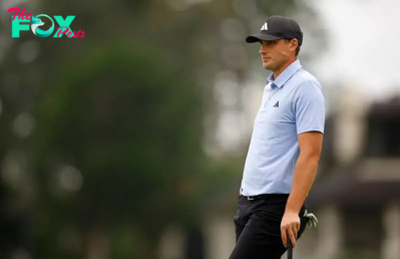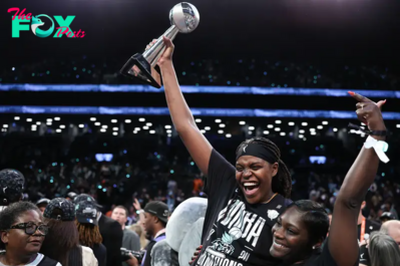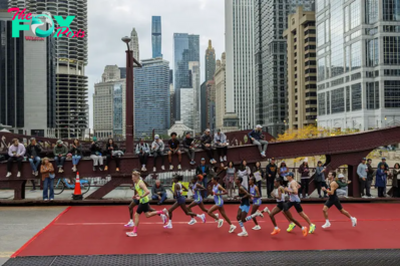Sports
How the International Olympic Committee Fails Athletes
Athletes here at the Paris Olympics have brought us magical performances, from U.S. gymnast Simone Biles, to French phenom swimmer LĂŠon Marchand, to Ankita Dhyani, a 5,000-meter runner from India we watched circle the purple oval at the Stade de France, finishing last yet receiving a rousing applause when she crossed the line, as if she had won the race. Olympians make the Olympics special, plain and simple.
But behind the shimmering sheen of athletic brilliance and perseverance, stark inequalities exist all around. The gap between millionaire Olympians like Novak Djokovic and LeBron James and athletes from lesser-known sports like canoe slalom and badminton is the equivalent of a sporting Grand Canyon. The benefits that powerful countries like the U.S., China, and France hold over nations with GDPs smaller than some American cities show up with crisp visibility on the Olympic medal table. But perhaps the most seismic inequality, and one that all too often evades public notice, let alone scrutiny, is the yawning gap between the luxury-box existence of the International Olympic Committee and most Olympians themselves.
The IOCâs slogan is âPutting Athletes First.â But all too often, athletes come in closer to last.
The Olympic money shuffle is a great place to start. The IOC is officially a nonprofit, but it sure is profitable. According to its most recent annual report, the organization raked in $7.6 billion in the Olympic cycle spanning 2017 to 2020-21. A 2019 study from Toronto Metropolitan University and Global Athlete found that only 4.1% of Olympic revenues make it into athlete pockets (whereas with the NFL, NBA, NHL, and MLB itâs more like 45-50%). The IOC often reminds us that it redistributes 90% of its funds, but only a paltry 0.5% is direct compensation to athletes.
Ahead of the Paris Olympics, Global Athlete, the athlete-led group fighting for enhanced rights and increased pay, released a statement asserting that the Olympics âserve the interests of the few powerbrokers behind the International Olympic Committeeâ and that âthe Olympics are failing to serve the interests of athletes ⌠because the IOC, which wields complete control over all things Games related, operates without accountability.â
At the 2020 Tokyo Olympicsâpostponed until 2021 because of the COVID-19 pandemicâthe IOC chose to stage the Games even though transmission rates were high and a national poll revealed that 83% in Tokyo did not want it to proceed. The pandemic was a challenging time for anyone putting on a big-ticket event, not least the IOC. But the organization took steps that seemed to prioritize their own finances over athletes.
Certainly, the IOC and local organizers in Paris were not âputting athletes firstâ when they chose to stage the triathlon and marathon swim in the Seine River. The sights of athletes vomiting when leaving the Seine or reports of sickness due to E.coli was hardly unpredictable. We spoke to people in the Paris office of the Surfrider Foundation, an environmental group, which was logging high and unsafe levels of E. Coli and enterococci for months. And Surfrider noted that they were only testing for bacteria, in alignment with the European Bathing Water Directive, not pesticide runoff, pharmaceutical refuse, or toxic metals. But the French government has put $1.5 billion into cleaning itâthe images of people swimming in the Seine for the first time in a century were irresistible, and athletes were put last.
Read More: Inside the Billion-Dollar Effort to Clean Up the Seine
While many athletes live hand-to-mouth, the IOC enjoys an opulent existence. Here in Paris, its members are staying in the ritzy HĂ´tel du Collectionneur, which the IOC is renting out for a cool âŹ22 million ($24 million). IOC members also enjoy extravagant perks, like first-class airfare and five-star accommodations. And they receive per diem payments of up to $900 on days they attend the Olympics and other official IOC events. This means an IOC member could make more money in per diem alone, than a U.S. Olympian who earns a bronze medal and the $15,000 that comes with it from the U.S. Olympic and Paralympic Committee.
Back at the HĂ´tel du Collectionneur in Paris, the IOC have banned reporters from entering the building where they are residing for the first time in decades. Decision making has also become increasingly centralized under a small team of senior executives, including its current president, Thomas Bach of Germany. Small groups of loyal IOC membersâcalled Future Host Commissionsânow essentially choose which cities will host the Olympics, with the rest of the organization relegated to being a gold-plated rubber stamp.
For all of these reasons, itâs time for the current iteration of the IOC to go. This might sound radical, but the IOC has yet to find an answer to the role the Games play in overspending public money, stoking displacement, and intensifying policing in Olympic host cities. Itâs also time to end the fiction that the current iteration of the Games are environmentally sustainable, given the air miles and mega construction projects. Just ask the people of Teahupoâo, Tahiti, host of the Paris 2024 surfing comPetition, who protested the construction of an Olympic-standard viewing tower that damaged the communityâs delicate coral reef, possibly affecting its ecosystem for decades.
The current iteration of the IOC should be replaced with athletes and independent thinkers who are not afraid to make drastic changes. That includes embedding democratic decision-making processes at every level, refusing to hand hosting rights for the Games to egregious human-rights violators, and making sure athletes receive a bigger slice of the Olympic money pie.
In the era of climate disruption, such measures are especially necessary, if not inevitable. Here in Paris, Madeleine Orr, assistant professor of sports ecology at the University of Toronto, told us this in no uncertain terms. âA sustainable Olympics is an oxymoron,â she said. âAnd the [Olympic] model is completely untenable. Theyâre not going to be able to continue to do it much longer.â
At the opening ceremony of the Paris Games, IOC President Bach delivered a speech. As he delivered his remarks in the rain, an assistant held an umbrella over Bachâs head so he wouldnât get wet (unlike the flag bearers, volunteers, and fans in attendance). The image dripped with symbolism. One reality for the IOC and another for everyone else.
-

 Sports3h ago
Sports3h ago2024 RSM Classic: Round 1 tee times, pairings and featured groups | PGA Tour
-

 Sports5h ago
Sports5h agoâBased on a True Storyâ Season 2 Features a Joke About a Murderer Targeting Travis Kelce
-

 Sports9h ago
Sports9h ago2024 CME Group Tour Championship: Round 1 tee times, pairings and featured groups | LPGA Tour
-

 Sports9h ago
Sports9h agoHow much prize money does the winner get at the 2024 CME Group Tour Championship? LPGA Tour
-

 Sports16h ago
Sports16h agoKelly Stafford Says She Used to Feel âDirtyâ Using Husband Matthew Staffordâs Name for Clout
-

 Sports20h ago
Sports20h ago2024 Las Vegas Grand Prix: Date, time and how to watch the F1 race on TV and stream online
-

 Sports22h ago
Sports22h agoDave Portnoy Bashes Zach Bryan for Allegedly Begging for UFC Shout-Out in Front of Brianna Chickenfry
-

 Sports22h ago
Sports22h agoPro Golfer Brian Harmanâs 6-Year-Old Son Nearly Drowned, Family Friend Who Helped Save Him in Coma


























